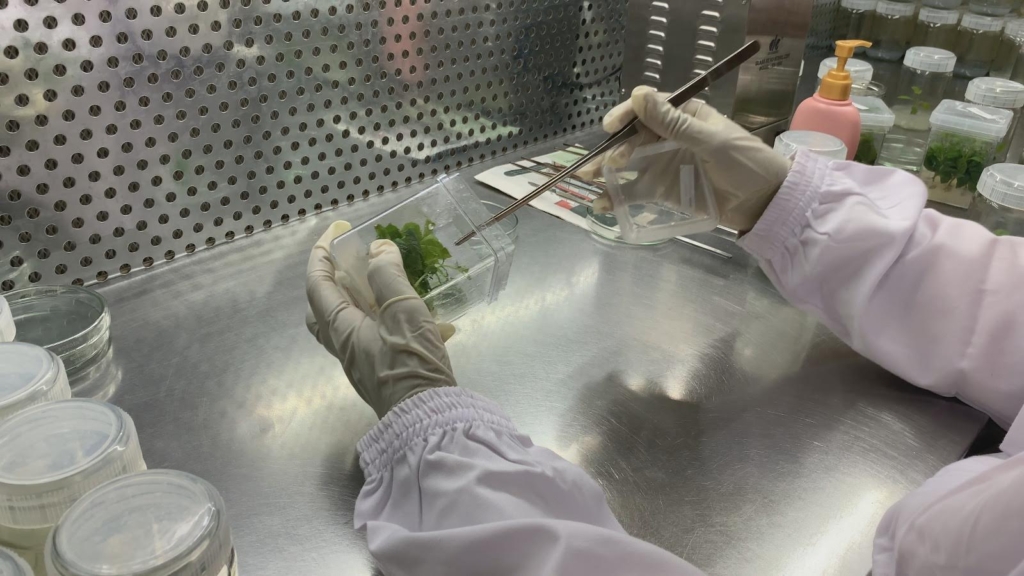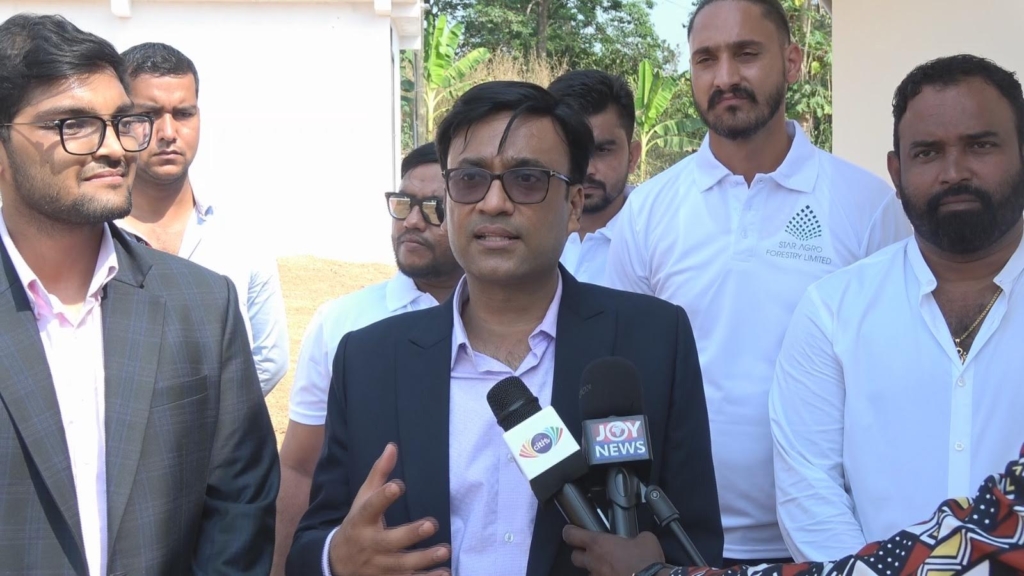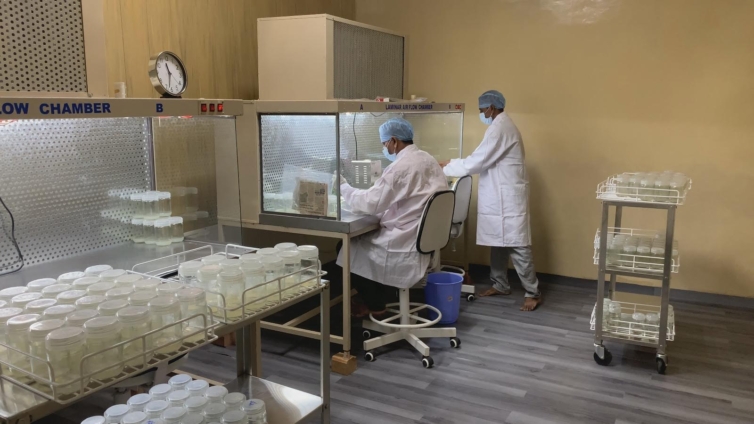Ghana’s forest cover could soon see a major boost after the Ministry of Lands and Natural Resources commissioned a Teak Tissue Culture Laboratory in the Atwima Nwabiagya District of the Ashanti region.
The cutting-edge edifice provides technologies which are viable alternatives to conventional vegetative multiplication to produce 100,000 thousand to one million shoots in a single year.
Unlike the traditional method of seedling planting for forest landscape restoration, the new facility will make seedlings easily accessible for replanting on degraded lands in the country.
From 2017 to 2023, a total area of 728,608 hectares of degraded lands has been put under restoration in Ghana.

These lands suffered the devastation of illegal mining, illegal logging, bushfires and illegal tree fells.
Star Agro Forestry Limited is one of the beneficiary private sector companies which has been allocated degraded forest reserves to undertake commercial forest plantation development.
The company has been allocated over 1,500 hectares of degraded forest lands in the Offin Shelterbelt Forest Reserve in the Nkawie Forest District to undertake commercial forest plantation development.

The Tissue Culture Laboratory has been established to ensure that the company can produce high-quality genetically superior tree seedlings for their planting activities and meet re-afforestation targets of degraded lands.

Deputy Minister for Lands and Natural Resources, Benito Owusu-Bio who spoke to the theme “Public Private Participation in Forest Landscape Restoration in Ghana” said the new technology is a game changer.
“This facility is a game changer for our agro-forestry production drive. This is a commercial facility that will ensure we get good seedlings for the plantation in our restoration efforts.
“The restoration initiatives have generated several benefits to our country including job creation, improvement of rural livelihoods, enhanced food security, protection of our watersheds and support to national and global efforts aimed at addressing climate change,” he said.

Chief Executive of the Forestry Commission, John Allotey, says the facility will produce indigenous species to fasten reclamation of lands.
“They can run their production to half a million in 6 months, and they are going to work on indigenous and exotic species, not only plantation species. So they will provide Wawa, Odum.
“And the plantation material will be available for all those working or investing in plantation projects, and we hope this will help reclaim the degraded lands,” he said.

Sanjay Poddar, Managing Director of Star Agro Forestry Limited, says overblown yields are guaranteed with the new technology establishment.
“Ghana had the lands, and water but only the technology was lacking, unlike many developed countries. Normal growth of seedlings with the traditional method are 20 to 22 years.
“With tissue culture technology, and the best foundation in the base, we are looking at a growth or maturity period of 7 to 9 years, and the yield will be more,” he said.

The Ministry of Land and Natural Resources has committed a 7-million-dollar credit facility from the World Bank under the Ghana Forest Investment Programme (GFIP) for disbursement as a concessionary loan facility to small and medium-scale private commercial forest plantation developers in Ghana.
Latest Stories
-
WAFCON 2024: Black Queens must be at their best against Mali – Kim Björkegren
34 minutes -
Ablekuma North: Someday others will fly because you walked – Akosua Manu to Akua Afriyie amid EC rerun decision
58 minutes -
Hungary, Switzerland and India explore mining partnership with Lands Ministry
1 hour -
Akufo-Addo/Bawumia government’s major gains in TVET transformation highlighted
1 hour -
IERPP to ORAL: Where’s the $18.4bn recovery account?
1 hour -
‘IMF is not God’ – Amanda Clinton
2 hours -
GIPC launches Investment Opportunities Mapping Project
2 hours -
TVET no longer the preserve of the less academically inclined – Education Minister
2 hours -
Ablekuma North rerun: Security plans to follow
2 hours -
Ablekuma North rerun: EC defends use of scanned pink sheets
3 hours -
EC confirms security assurance ahead of Ablekuma North rerun
3 hours -
No arrests made over 2024 Ablekuma North election violence – EC
3 hours -
Ablekuma North rerun: Photos from the constituency ahead of Friday polls
3 hours -
TECNO kicks off new era with Spark 40 series and CAF partnership
3 hours -
Ablekuma North re-run: Bawumia supports Akua Afriyie with GH₵410k
3 hours

